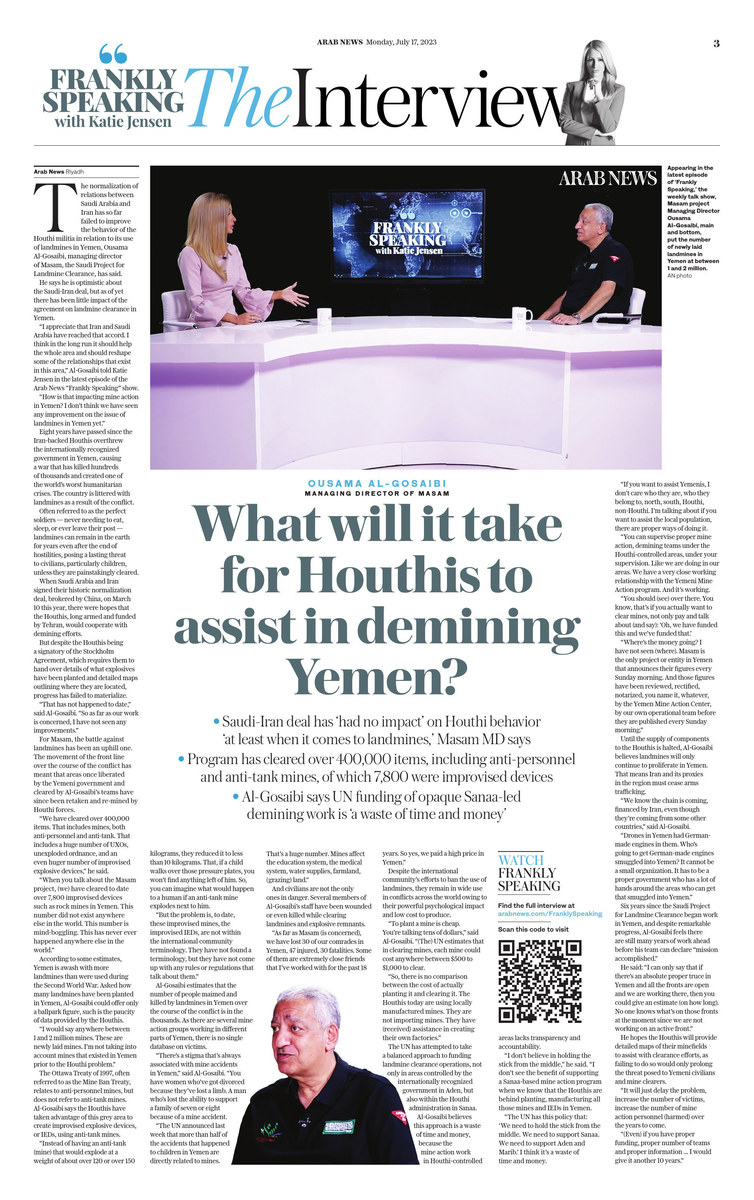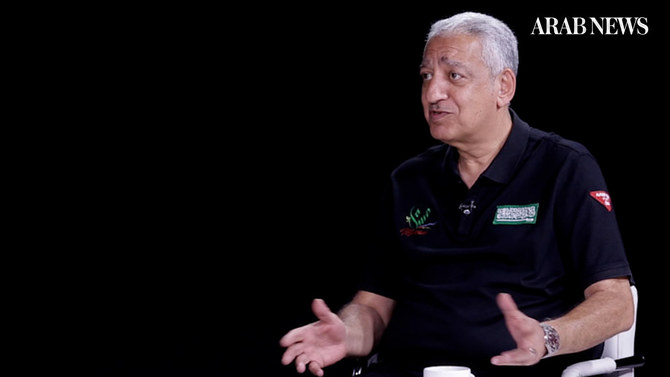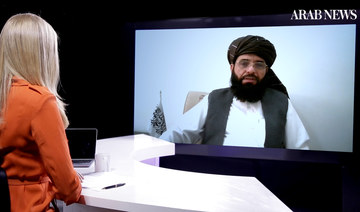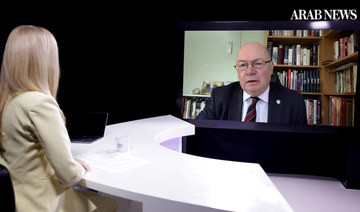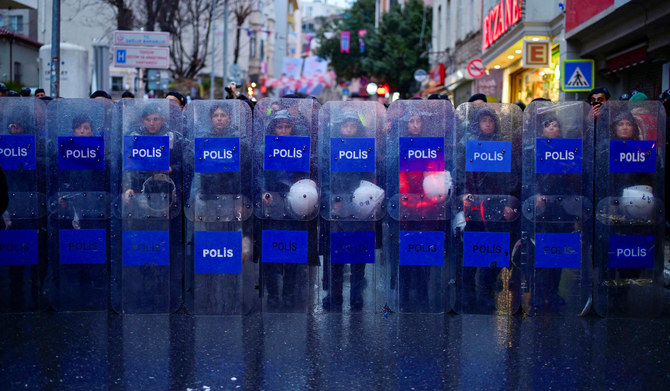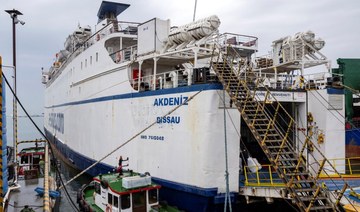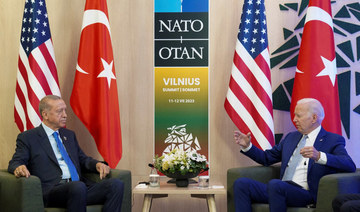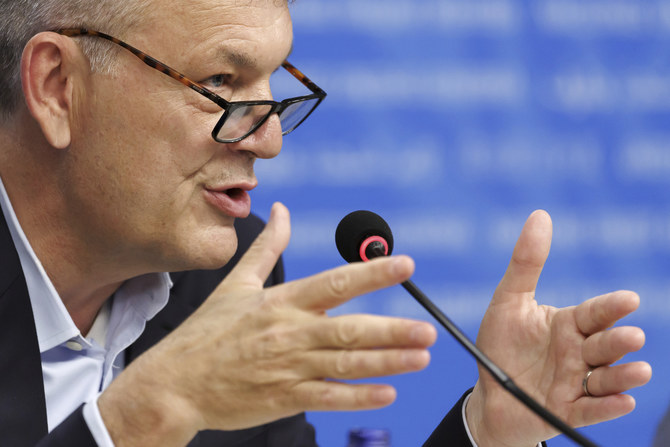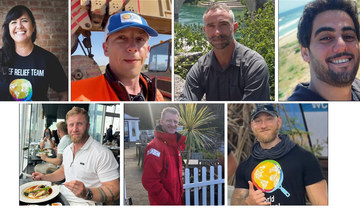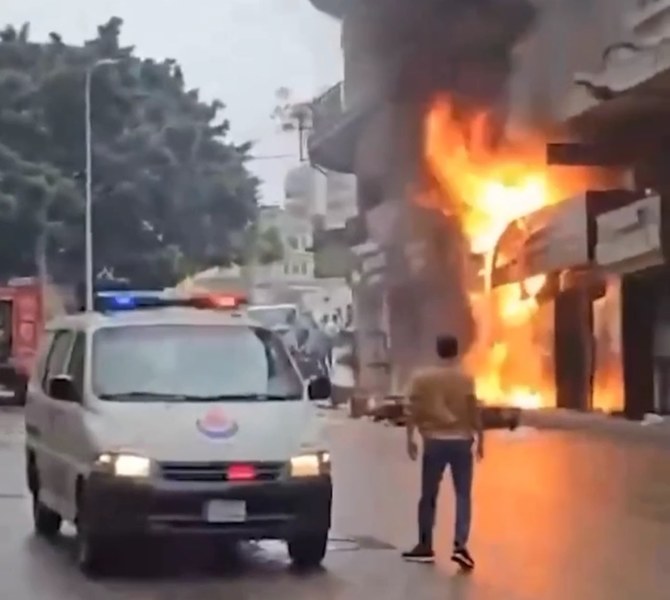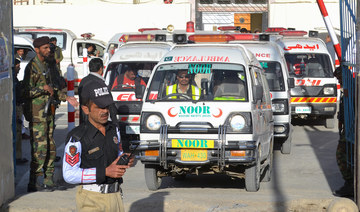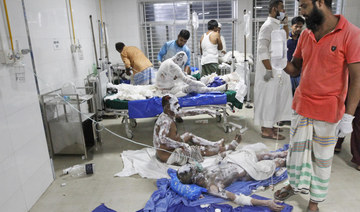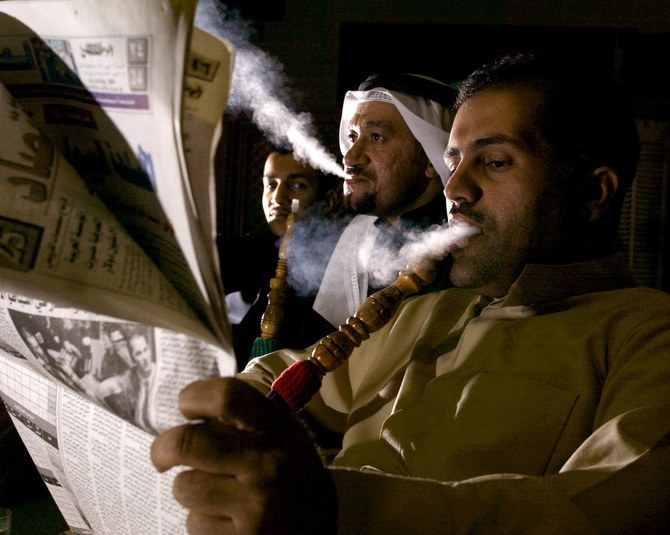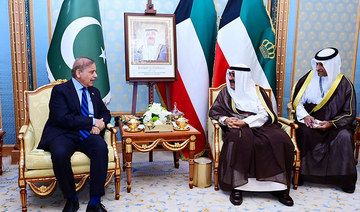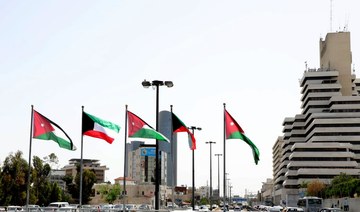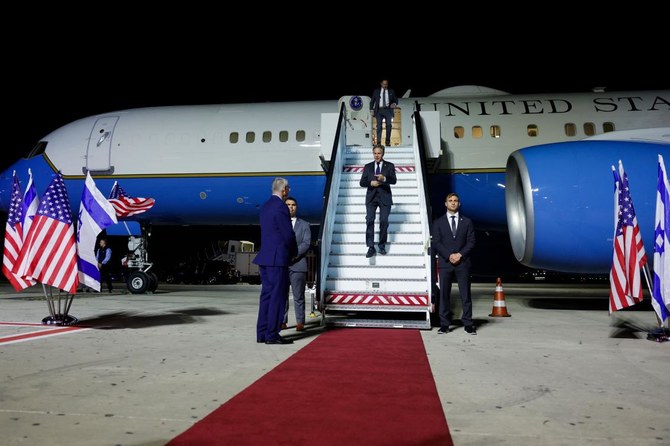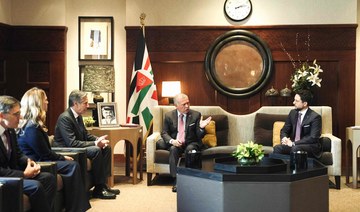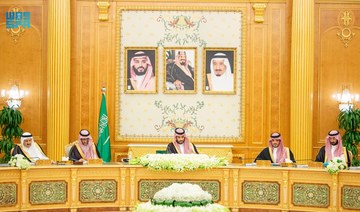RIYADH: The normalization of relations between Saudi Arabia and Iran has so far failed to improve the behavior of the Houthi militia in relation to its use of landmines in Yemen, Ousama Al-Gosaibi, managing director of Masam, the Saudi Project for Landmine Clearance, has said.
He says he is optimistic about the Saudi-Iran deal, but as of yet there has been little impact of the agreement on landmine clearance in Yemen.
“I appreciate that Iran and Saudi Arabia have reached that accord. I think in the long run it should help the whole area and should reshape some of the relationships that exist in this area,” Al-Gosaibi told Katie Jensen in the latest episode of the Arab News “Frankly Speaking” show.
“How is that impacting mine action in Yemen? I don’t think we have seen any improvement on the issue of landmines in Yemen yet.”
Eight years have passed since the Iran-backed Houthis overthrew the internationally recognized government in Yemen, causing a war that has killed hundreds of thousands and created one of the world’s worst humanitarian crises. The country is littered with landmines as a result of the conflict.
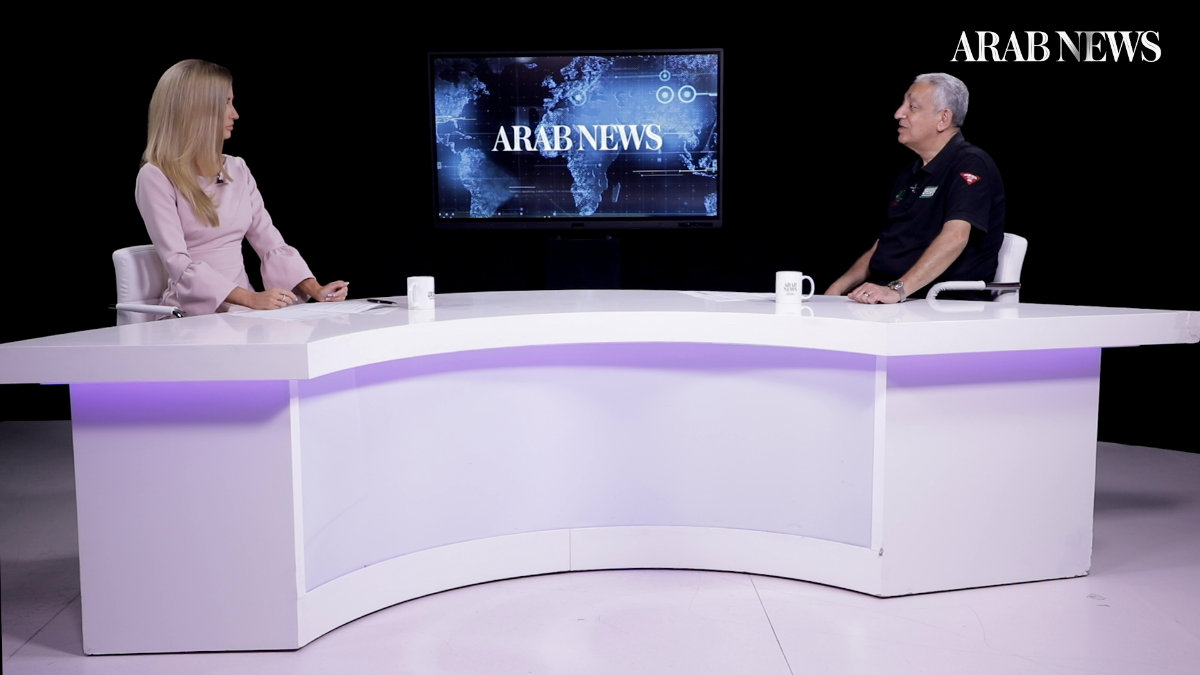
Ousama Al-Gosaibi, managing director of Masam, the Saudi Project for Landmine Clearance, speaks to Katie Jensen in the latest episode of the Arab News “Frankly Speaking” show. (AN photo)
Often referred to as the perfect soldiers — never needing to eat, sleep, or ever leave their post — landmines can remain in the earth for years even after the end of hostilities, posing a lasting threat to civilians, particularly children, unless they are painstakingly cleared.
When Saudi Arabia and Iran signed their historic normalization deal, brokered by China, on March 10 this year, there were hopes that the Houthis, long armed and funded by Tehran, would cooperate with demining efforts.
But despite the Houthis being a signatory of the Stockholm Agreement, which requires them to hand over details of what explosives have been planted and detailed maps outlining where they are located, progress has failed to materialize.
“That has not happened to date,” said Al-Gosaibi. “So as far as our work is concerned, I have not seen any improvements.”
For Masam, the battle against landmines has been an uphill one. The movement of the front line over the course of the conflict has meant that areas once liberated by the Yemeni government and cleared by Al-Gosaibi’s teams have since been retaken and re-mined by Houthi forces.
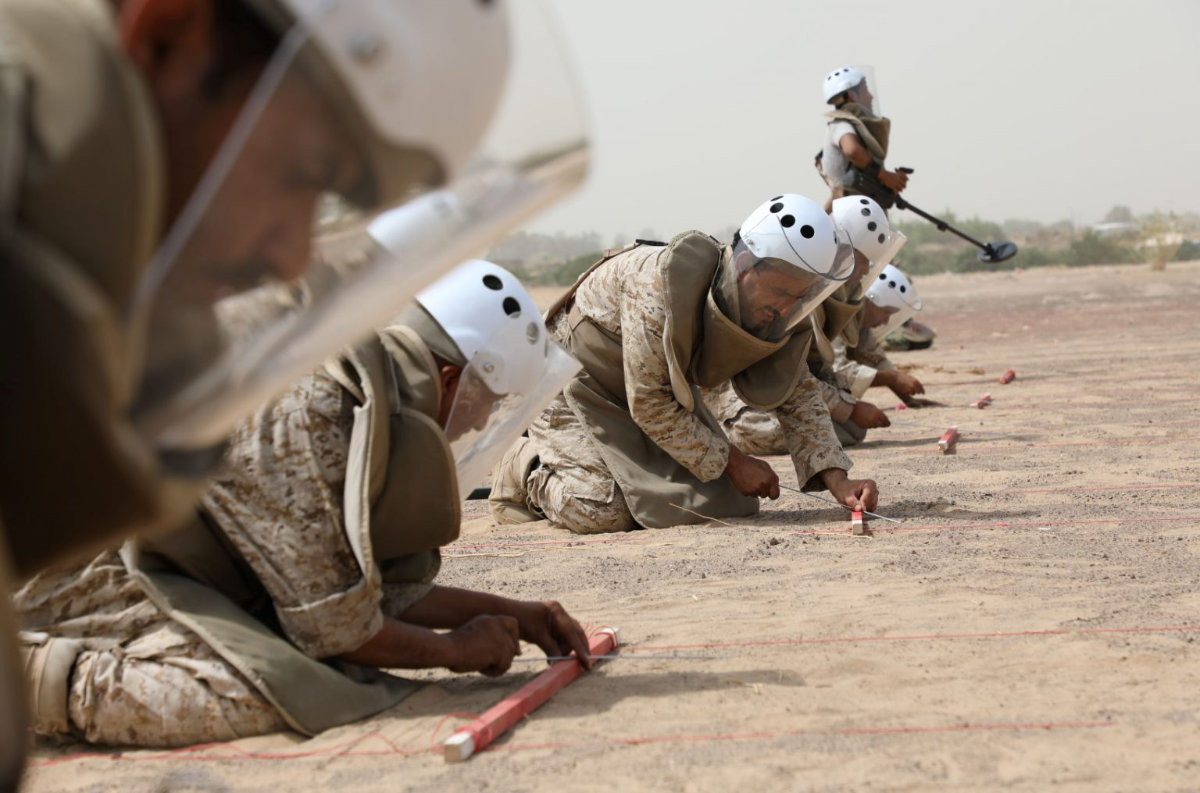
Land-mine clearing experts at work in Yemen's battlefields. (Twitter: @Masam_ENG)
“We have cleared over 400,000 items. That includes mines, both anti-personnel and anti-tank. That includes a huge number of UXOs, unexploded ordnance, and an even huger number of improvised explosive devices,” he said.
“When you talk about the Masam project, (we) have cleared to date over 7,800 improvised devices such as rock mines in Yemen. This number did not exist anywhere else in the world. This number is mind-boggling. This has never ever happened anywhere else in the world.”
According to some estimates, Yemen is awash with more landmines than were used during the Second World War. Asked how many landmines have been planted in Yemen, Al-Gosaibi could offer only a ballpark figure, such is the paucity of data provided by the Houthis.
“I would say anywhere between 1 and 2 million mines. These are newly laid mines. I’m not taking into account mines that existed in Yemen prior to the Houthi problem.”
The Ottawa Treaty of 1997, often referred to as the Mine Ban Treaty, relates to anti-personnel mines, but does not refer to anti-tank mines. Al-Gosaibi says the Houthis have taken advantage of this grey area to create improvised explosive devices, or IEDs, using anti-tank mines.
“Instead of having an anti-tank (mine) that would explode at a weight of about over 120 or over 150 kilograms, they reduced it to less than 10 kilograms. That, if a child walks over those pressure plates, you won’t find anything left of him. So, you can imagine what would happen to a human if an anti-tank mine explodes next to him.
“But the problem is, to date, these improvised mines, the improvised IEDs, are not within the international community terminology. They have not found a terminology, but they have not come up with any rules or regulations that talk about them.”
Al-Gosaibi estimates that the number of people maimed and killed by landmines in Yemen over the course of the conflict is in the thousands. As there are several mine action groups working in different parts of Yemen, there is no single database on victims.
“There’s a stigma that’s always associated with mine accidents in Yemen,” said Al-Gosaibi. “You have women who’ve got divorced because they’ve lost a limb. A man who’s lost the ability to support a family of seven or eight because of a mine accident.
“The UN announced last week that more than half of the accidents that happened to children in Yemen are directly related to mines. That’s a huge number. Mines affect the education system, the medical system, water supplies, farmland, (grazing) land.”
And civilians are not the only ones in danger. Several members of Al-Gosaibi’s staff have been wounded or even killed while clearing landmines and explosive remnants.
“As far as Masam (is concerned), we have lost 30 of our comrades in Yemen, 47 injured, 30 fatalities. Some of them are extremely close friends that I’ve worked with for the past 18 years. So yes, we paid a high price in Yemen.”
Despite the international community’s efforts to ban the use of landmines, they remain in wide use in conflicts across the world owing to their powerful psychological impact and low cost to produce.
“To plant a mine is cheap. You’re talking tens of dollars,” said Al-Gosaibi. “(The) UN estimates that in clearing mines, each mine could cost anywhere between $500 to $1,000 to clear.
“So, there is no comparison between the cost of actually planting it and clearing it. The Houthis today are using locally manufactured mines. They are not importing mines. They have (received) assistance in creating their own factories.”
The UN has attempted to take a balanced approach to funding landmine clearance operations, not only in areas controlled by the internationally recognized government in Aden, but also within the Houthi administration in Sanaa.
Al-Gosaibi believes this approach is a waste of time and money, because the mine action work in Houthi-controlled areas lacks transparency and accountability.
“I don’t believe in holding the stick from the middle,” he said. “I don’t see the benefit of supporting a Sanaa-based mine action program when we know that the Houthis are behind planting, manufacturing all those mines and IEDs in Yemen.
“The UN has this policy that: ‘We need to hold the stick from the middle. We need to support Sanaa. We need to support Aden and Marib.’ I think it’s a waste of time and money.
“If you want to assist Yemenis, I don’t care who they are, who they belong to, north, south, Houthi, non-Houthi. I’m talking about if you want to assist the local population, there are proper ways of doing it.
“You can supervise proper mine action, demining teams under the Houthi-controlled areas, under your supervision. Like we are doing in our areas. We have a very close working relationship with the Yemeni Mine Action program. And it’s working.
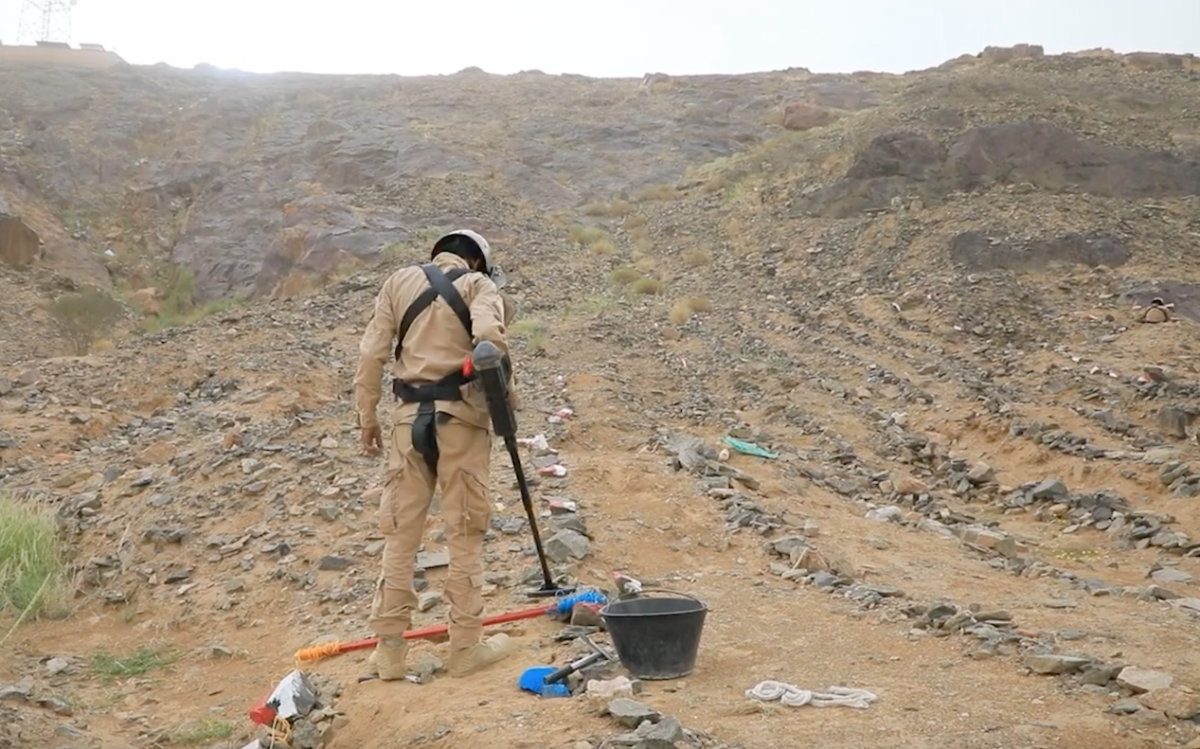
Land-mine clearing is a tedious and dangerous job and and a never-ending one in Yemen's battlefields. (Twitter: @Masam_ENG)
“You should (see) over there. You know, that’s if you actually want to clear mines, not only pay and talk about (and say): ‘Oh, we have funded this and we’ve funded that.’
“Where’s the money going? I have not seen (where). Masam is the only project or entity in Yemen that announces their figures every Sunday morning. And those figures have been reviewed, rectified, notarized, you name it, whatever, by the Yemen Mine Action Center, by our own operational team before they are published every Sunday morning.”
Until the supply of components to the Houthis is halted, Al-Gosaibi believes landmines will only continue to proliferate in Yemen. That means Iran and its proxies in the region must cease arms trafficking.
“We know the chain is coming, financed by Iran, even though they’re coming from some other countries,” said Al-Gosaibi.
“Drones in Yemen had German-made engines in them. Who’s going to get German-made engines smuggled into Yemen? It cannot be a small organization. It has to be a proper government who has a lot of hands around the areas who can get that smuggled into Yemen.”
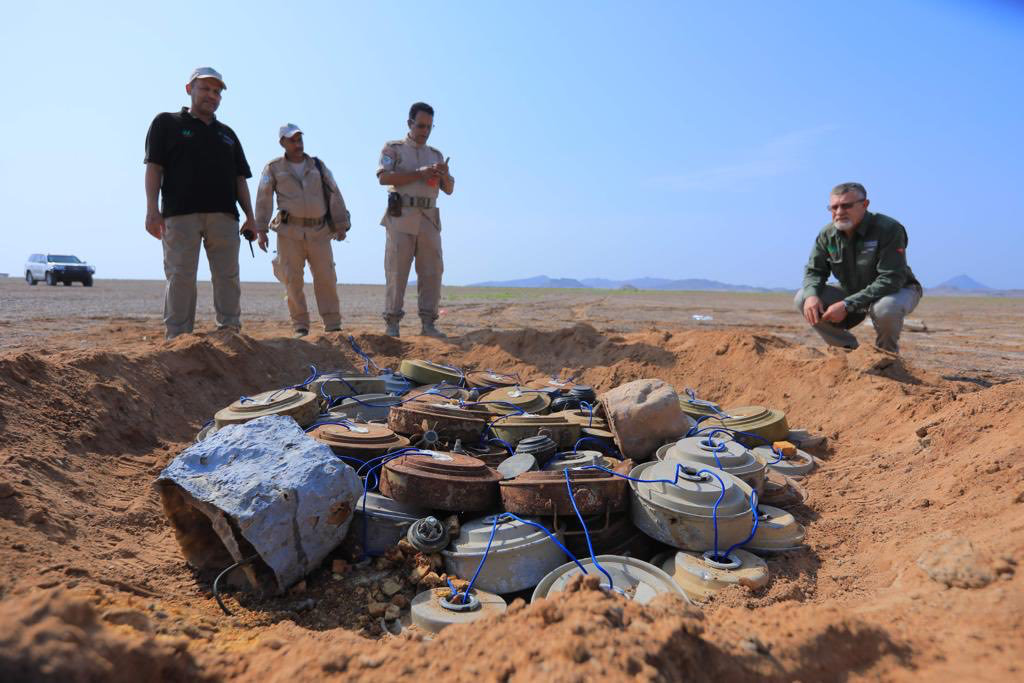
Masam landmine workers preparing to explode landmines cleared from a battlefield in Yemen. (Twitter: @Masam_ENG))
Six years since the Saudi Project for Landmine Clearance began work in Yemen, and despite remarkable progress, Al-Gosaibi feels there are still many years of work ahead before his team can declare “mission accomplished.”
He said: “I can only say that if there’s an absolute proper truce in Yemen and all the fronts are open and we are working there, then you could give an estimate (on how long). No one knows what’s on those fronts at the moment since we are not working on an active front.”
He hopes the Houthis will provide detailed maps of their minefields to assist with clearance efforts, as failing to do so would only prolong the threat posed to Yemeni civilians and mine clearers.
“It will just delay the problem, increase the number of victims, increase the number of mine action personnel (harmed) over the years to come.
“(Even) if you have proper funding, proper number of teams and proper information ... I would give it another 10 years.”
